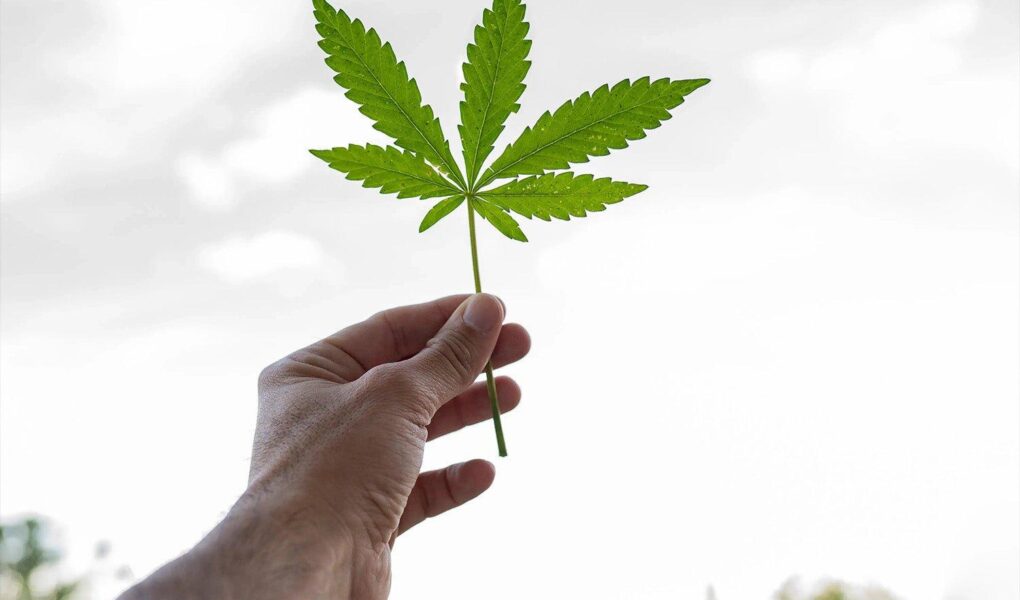Title: Exploring the Clouds: Is Marijuana a Mind-Altering Drug?
As the sun sets behind the horizon, casting golden hues across the sky, a sense of curiosity lingers in the air, even among the whispers of the evening breeze. In homes, coffee shops, and conversations around the world, the topic of marijuana is as pervasive as the delicious aroma of freshly brewed coffee. But what lies beneath this leafy green plant that has sparked debate for generations? Is marijuana merely a recreational pastime, or does it hold the power to alter perception, thoughts, and emotions? In this article, we embark on a journey through the intricate layers of marijuana, examining its potential effects on the mind and how cultural perceptions have shaped our understanding of this controversial substance. Join us as we navigate the highs and lows of this fascinating discussion, seeking clarity in the haze of opinion and experience.
Table of Contents
- Understanding the Neurochemical Effects of Marijuana on the Brain
- Exploring the Psychological Impacts of Cannabis Use
- Evaluating the Societal Perceptions and Misconceptions of Marijuana
- Recommendations for Responsible Usage and Mental Health Awareness
- Q&A
- Future Outlook
Understanding the Neurochemical Effects of Marijuana on the Brain
Marijuana exerts complex neurochemical effects on the brain, primarily through its active compounds known as cannabinoids, with tetrahydrocannabinol (THC) being the most prominent. THC mimics the structure of naturally occurring neurotransmitters in the brain, allowing it to bind to cannabinoid receptors found in various regions responsible for emotion, memory, and coordination. This binding can lead to altered perceptions, enhanced sensory experiences, and changes in mood. Some of the immediate effects reported by users include:
- Increased euphoria
- Heightened sensory awareness
- Relaxation or reduced anxiety
- Impaired memory and cognitive processing
Moreover, the impact of marijuana isn’t limited to THC; cannabidiol (CBD), another significant cannabinoid, offers a contrasting profile that can mitigate some of the psychoactive effects associated with THC. This differentiation indicates that the overall effect of marijuana can vary greatly depending on the strain and composition of the product used. Notably, research suggests that prolonged use may lead to alterations in normal brain function, particularly in young individuals whose brains are still developing. A brief comparison of the primary cannabinoids can illustrate their divergent roles:
| Cannabinoid | Psychoactive Effect | Potential Benefits |
|---|---|---|
| THC | Yes | Euphoria, Pain relief |
| CBD | No | Anti-inflammatory, Anxiety reduction |
Exploring the Psychological Impacts of Cannabis Use
Cannabis is often perceived through a lens of dichotomy, oscillating between a means of therapeutic relief and a substance that can induce profound alterations in perception and mood. Its psychoactive compound, tetrahydrocannabinol (THC), binds to receptors in the brain, leading to a cascade of psychological effects. Users may experience heightened sensory perception, altered time awareness, and shifts in emotional states, all of which can be both enjoyable and disorienting. Some individuals find that cannabis enhances their creativity and relaxation, offering a welcome respite from daily stressors. However, others report feelings of anxiety, paranoia, or cognitive impairment, showcasing the substance’s capacity to evoke a wide range of psychological responses.
The psychological impacts of cannabis use can vary significantly between individuals, influenced by numerous factors such as dosage, method of consumption, and personal predispositions. Research indicates that those with a history of mental health issues may be more susceptible to adverse effects. The following factors play crucial roles in shaping the cannabis experience:
- Genetics: Individual genetic makeup can predispose users to different responses.
- Dosage: Higher concentrations of THC are often linked with increased anxiety and cognitive fog.
- Environment: A comfortable setting may enhance positive effects, while a chaotic atmosphere may trigger paranoia.
- Frequency of Use: Regular use may lead to tolerance, affecting future experiences.
Understanding these factors is vital for formulating a balanced view on cannabis as a mind-altering substance. Below is a simplified table highlighting distinct psychological effects that users may encounter:
| Effect | Potential Outcome |
|---|---|
| Enhanced Sensory Awareness | Increased enjoyment of music, art, and social interactions. |
| Altered Time Perception | Feeling of time slowing down, which can be relaxing or disconcerting. |
| Anxiety or Paranoia | Increased fear or discomfort in some individuals, particularly at high doses. |
| Cognitive Impairment | Difficulty concentrating or recalling information, affecting day-to-day activities. |
Evaluating the Societal Perceptions and Misconceptions of Marijuana
Throughout history, societal perceptions of marijuana have fluctuated dramatically, often driven by cultural narratives, political agendas, and scientific findings. Misconceptions surrounding its use frequently intertwine with debates about its safety, legality, and impact on mental health. Some people view marijuana as a purely recreational substance, disregarding its potential therapeutic benefits. In contrast, others emphasize its ability to alter perception, mood, and cognition, contributing to a stigma that regards it solely as a dangerous drug. As a result of these conflicting attitudes, individuals may approach marijuana use with a dichotomous lens that either glorifies or vilifies its place in society.
To better understand these perceptions, it is crucial to examine various socioeconomic factors contributing to public opinion. Consider the following table that outlines different perspectives on marijuana based on demographic factors:
| Demographic Factor | Positive Perception | Negative Perception |
|---|---|---|
| Age Group | Young adults tend to see it as a form of recreation. | Older generations often associate it with addiction and health risks. |
| Education Level | Higher education levels may correlate with acceptance due to awareness of medicinal benefits. | Lower education levels might lead to fear and misunderstanding of its effects. |
| Geographic Location | Urban populations are generally more favorable toward legalization. | Rural communities may maintain traditional views against its use. |
Recommendations for Responsible Usage and Mental Health Awareness
Understanding the effects of marijuana, particularly its potential to alter perception, is essential for both users and non-users alike. As society becomes more accepting of cannabis, it is vital to promote responsible usage, ensuring that individuals engage with the substance thoughtfully and with an awareness of their mental health. It is crucial to consider the following guidelines:
- Know Your Limits: Start with small doses and gradually understand how marijuana affects your body and mind.
- Stay Informed: Keep abreast of local laws and health resources regarding cannabis to make educated choices.
- Listen to Your Body: Pay attention to your mental and emotional responses to marijuana, and don’t hesitate to seek help if you notice negative impacts.
- Prioritize Mental Health: If you have a history of mental health issues, consult with a healthcare professional before using marijuana.
Awareness of potential mental health impacts is key as the conversation surrounding marijuana evolves. To support well-being, consider these practices:
| Practice | Benefit |
|---|---|
| Journaling | Helps track emotions and reactions while using marijuana. |
| Mindfulness Meditation | Enhances self-awareness and emotional regulation. |
| Support Groups | Provides a platform for sharing experiences and coping strategies. |
Q&A
Q&A: Is Marijuana a Mind-Altering Drug?
Q1: What exactly is a mind-altering drug?
A1: Mind-altering drugs are substances that can affect your mental state, perception, mood, or consciousness. These substances can make you feel different, think differently, or experience changes in your sensory perceptions. They can range from legal substances like caffeine to illegal ones like LSD.
Q2: Where does marijuana fit into this category?
A2: Marijuana, derived from the Cannabis plant, contains compounds known as cannabinoids, with THC (tetrahydrocannabinol) being the most notable for its psychoactive effects. When consumed, marijuana can indeed alter a person’s mind, which is why it’s often categorized as a mind-altering drug.
Q3: How does marijuana alter the mind?
A3: The THC in marijuana interacts with the brain’s endocannabinoid system, primarily binding to receptors that influence pleasure, memory, thought, concentration, and overall perception. As a result, users may experience heightened sensory perception, altered mood, and changes in thought patterns.
Q4: Are the effects of marijuana the same for everyone?
A4: Not at all. The effects of marijuana can vary widely depending on several factors, including the individual’s biology, the strain of marijuana, the method of consumption, and the setting in which it’s used. While some may feel relaxed or euphoric, others might experience anxiety or paranoia.
Q5: Do all forms of cannabis produce mind-altering effects?
A5: While THC-rich strains of cannabis are well-known for their psychoactive effects, not all forms of cannabis produce these changes. Some strains are bred specifically for their high CBD (cannabidiol) content, which is non-psychoactive. This means that while they bring therapeutic benefits, they may not alter the mind as THC does.
Q6: Is marijuana a safe mind-altering drug?
A6: The safety of marijuana varies with its use. For some, particularly those with certain mental health conditions, marijuana can exacerbate symptoms or lead to dependence. For others, especially in controlled doses and environments, it might present fewer risks. It’s essential for users to consider their health, context of use, and local laws.
Q7: What implications does this have for society?
A7: The classification of marijuana as a mind-altering drug has significant societal implications. It raises questions about legality, medical use, addiction, and public health. As perceptions around marijuana continue to shift, ongoing research and open discussions are key to navigating these complexities.
Q8: is marijuana a mind-altering drug?
A8: Yes, marijuana is considered a mind-altering drug due to its ability to affect cognition, perception, and mood. While its effects can be both positive and negative, understanding and respecting its influence is critical for both users and society at large.
—
In navigating the world of cannabis, knowledge is your best ally—only through informed choices can users reap the potential benefits while minimizing risks.
Future Outlook
In the grand tapestry of substance use and societal perceptions, the debate surrounding marijuana and its mind-altering properties is as vibrant as the plant itself. As we peel back the layers—scientific research, cultural narratives, and personal testimonies—we find a complex portrait that defies simple categorization. While many may argue that marijuana opens the door to new realms of creativity and introspection, others caution against the potential fog it can cast over clarity and motivation.
Ultimately, whether one views marijuana as a gateway to enhanced mindfulness or a distraction from reality, the key lies in individual experience and informed choice. The ongoing exploration of cannabis and its effects invites us to consider not just the substance, but our own perceptions and values as well. As we navigate this evolving landscape, it is essential to approach the subject with curiosity and respect for the myriad perspectives that color it. After all, in the intricate dance of mind and matter, the journey of understanding is just as important as the destination we seek.



